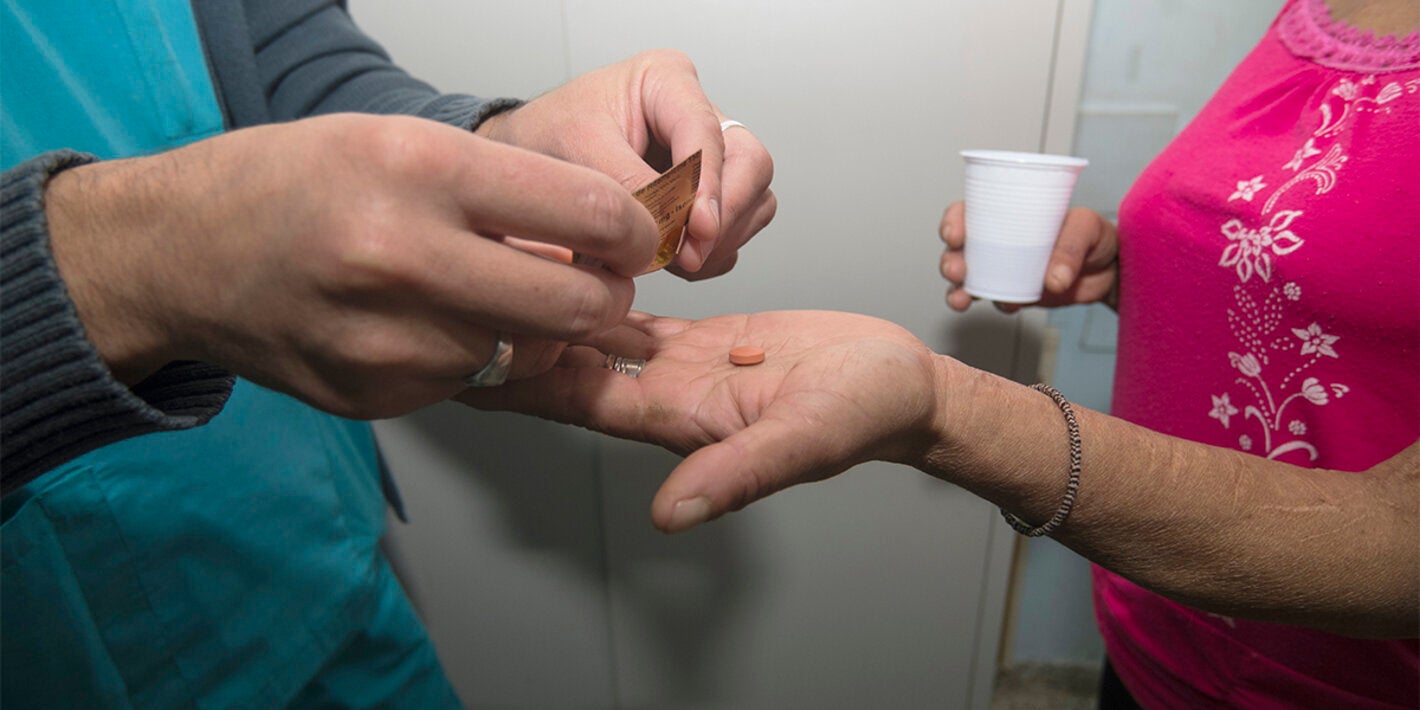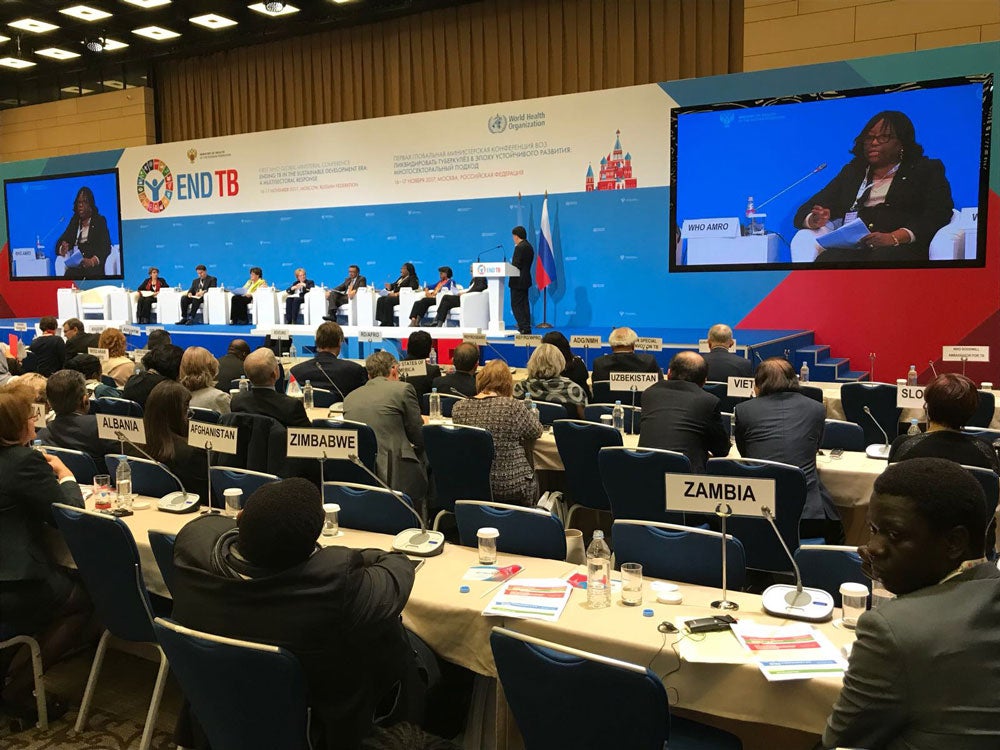
17 November 2017 | MOSCOW/ GENEVA - Today 75 ministers agreed to take urgent action to end tuberculosis by 2030. The announcement came at the first WHO Global Ministerial Conference on Ending Tuberculosis in the Sustainable Development Era: A Multisectoral Response, which brought together delegates from 114 countries in Moscow. President Vladimir Putin of the Russian Federation opened the Conference, together with UN Deputy Secretary General, Amina J Mohammed and Dr Tedros Adhanom Ghebreyesus, Director-General of WHO.

"Today marks a critical landmark in the fight to end TB," said Dr Tedros. "It signals a long overdue global commitment to stop the death and suffering caused by this ancient killer."
The Moscow Declaration to End TB is a promise to increase multisectoral action as well as track progress, and build accountability. It will also inform the first UN General Assembly High-Level Meeting on TB in 2018, which will seek further commitments from heads of state.
Global efforts to combat tuberculosis TB have saved an estimated 53 million lives since 2000 and reduced the TB mortality rate by 37%.However, progress in many countries has stalled, global targets are off-track and persistent gaps remain in TB care and prevention.
As a result, TB still kills more people than any other infectious disease. There are major problems associated with antimicrobial resistance, and it is the leading killer of people with HIV.
"One of the main problems has been lack of political will and inadequate investment in fighting TB," added Dr Tedros. "Today's declaration must go hand in hand with increased investment."
In the Americas
In the Americas, PAHO Director Carissa F. Etienne said at the conference, the Millennium Development targets related to tuberculosis were achieved ahead of schedule. "Despite our relative success," she added, "we in the Americas face a difficult challenge: addressing tuberculosis in a way that no one is left behind. As with many other public health problems, the persistence of tuberculosis-a disease that is both preventable and curable-is largely the consequence of the serious social and economic inequities that persist in our region."
Etienne said poverty, crowded living conditions; coinfections with HIV, and diabetes and malnutrition contribute to the endurance of tuberculosis in the Americas, along with cultural beliefs and barriers that limit access to health services. "All these problems tend to be magnified in people living in situations of vulnerability, such as people living on the streets, people deprived of liberty, substance abusers, indigenous populations and children," she added.
"The fight against tuberculosis is a pressing one," Etienne told participants. "But in order to sustain the momentum we need to keep building stronger health systems where quality services for tuberculosis, HIV, malaria, NTDs, emerging diseases, and noncommunicable diseases are readily available to everyone. This is the path to success."
The PAHO Director noted that the conference's commitments "will provide us with a tremendous opportunity" to harness political backing to "make the elimination of tuberculosis a reality." She added that ""A world free of tuberculosis must be our ultimate goal."
The countries of the Americas have dramatically reduced new cases and deaths from tuberculosis (TB) in the past 25 years. Despite this, nearly 270,000 people contracted the disease in 2015, and some 50,000 do not know they have it.
The commitment
The meeting was attended by ministers, country delegations, as well as representatives of civil society and international organizations, scientists and researchers. More than 1000 participants took part in the two-day conference which resulted in collective commitment to ramp up action on four fronts:
- Move rapidly to achieve universal health coverage - by strengthening health systems and improving access to people centered TB prevention and care, ensuring no one is left behind;
- Mobilize sufficient and sustainable financing through increased domestic and international investments to close gaps in implementation and research;
- Advance research and development of new tools to diagnose, treat, and prevent TB; and
- Build accountability through a framework to track and review progress on ending TB including multisectoral approaches.
Ministers also promised to minimize the risk and spread of drug resistance and do more to engage people and communities affected by, and at risk of, TB. The Russian Federation, host of the first Ministerial Conference to End TB, welcomed the Moscow Declaration. "Tuberculosis is a complex, multi-sectoral problem that requires a systemic and highly coordinated response to address the conditions which drive the disease," said Professor Veronika Skvortsova, Minister of Health, Russian Federation. "The accountability framework we have agreed to develop, marks a new beginning, and, with WHO's support to coordinate and track progress, we expect the Moscow Declaration to lead us forward to the high-level meeting of the UN General Assembly in 2018."



